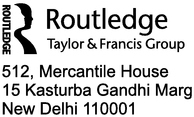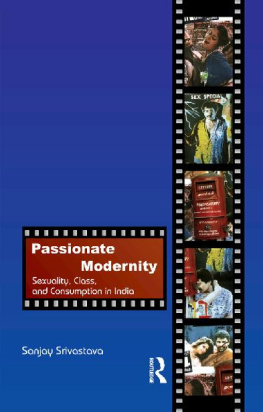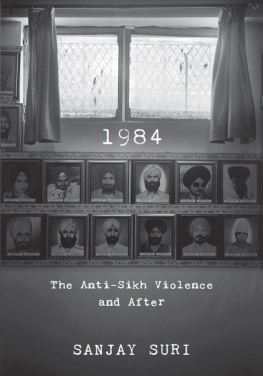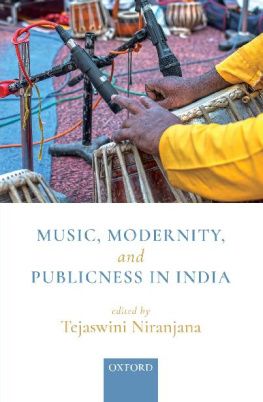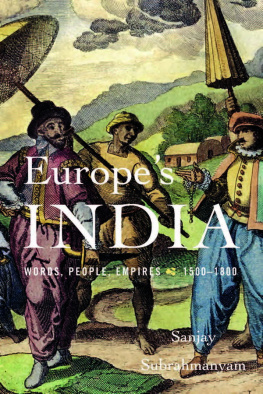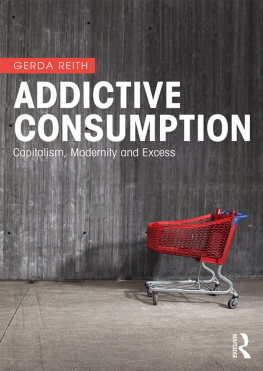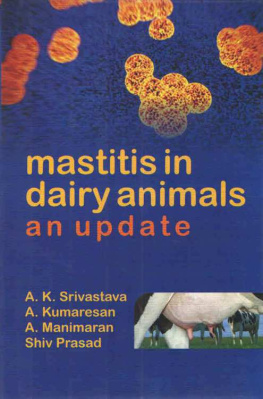Passionate Modernity
Passionate Modernity
Sexuality, Class, and Consumption in India
Sanjay Srivastava
First published 2007
By Routledge
512 Mercantile House, 15 Kasturba Gandhi Marg, New Delhi 110001
Simultaneously published in UK
by Routledge
2 Park Square, Milton Park, Abingdon, Oxon, OX14 4RN
Routledge is an imprint of the Taylor & Francis Group
Transferred to Digital Printing 2006
Sanjay Srivastava 2006
Typeset by
Bukprint India
B-180A Guru Nanak Pura, Laxmi Nagar
Delhi 110 092
All rights reserved. No part of this book may be reprinted or reproduced or utilized in any form or by any electronic, mechanical, or other means, now known or hereafter invented, including photocopying and recording, or in any information storage or retrieval system, without permission in writing from the publishers.
British Library Cataloguing in Publication Data
A catalogue record of this book is available from the British Library
ISBN 0-415-42415-1
We have not had enough education of the passions
Mahatma Gandhi to American birth-control activist Margaret Sanger, December 1935
Acknowledgements
Acknowledging the help and support of friends, colleagues and other commentators is one of the most pleasurable aspects of a scholarly project, for it connects the author to a wider community in a task too often experienced as solitary. I would like to thank the following for their comments, words of encouragement, and help in other ways: S. Anandhi, Amita Baviskar, Moinak Biswas, Lawrence Cohen, Radhika Chopra, Vasudha Dalmia, Steve Derne, Ashwini Deshpande, Kathryn Hansen, Kajri Jain, Sarah Joseph, Manju Khan, Viv Kondos, Mangesh Kulkarni, Ajith Kumar, Nita Kumar, Vinay Lai, Deepak Mehta, Sudesh Mishra, Vijay Mishra, Ashis Nandy, Stacy Leigh Pigg, Filippo Osella, M.S.S. Pandian, Sayeed Rizvi, Michael Roberts, Rahul Roy, S. Sanjeev, Patricia Uberoi, and, Himanshu Verma. Radha Khan corrected a crucial oversight in have substantially enhanced the discussion. An anonymous readers comments also helped in the process of revision.
The following have provided invaluable assistance in locating information on a number of crucial aspects: Puva Arumugam, Mr. Bansal (of Bansal Press), Mr. Raju Bharatan, Dr. Muhammad Chaudhury, Dr. Ashok Gupta, Mr. Har Mandir Singh Hamraaz, Binoo John, Dr. Arun Kumar, Mrs. Chitra Phularia, Sudha Tilak, and, Mr. Narendra Kumar Verma..
My thanks also to Kamal Fischer, Manju Khan, Uma Khan, Murali Krishnan, Revathi Krishnan, Geetu Mathrani, Alka Misra, Seema Misra, Sheema and Jhampan Mukheijee, Toppa and Munia, Ron and Thapa, Shishir Sharma, Veena Talwar and Philip Oldenburg, and Sanjeev and Salina Takru, for various kinds of comforts for Radha, Ishana and Ilika, and myself during times of research and writing.
I would also like to acknowledge the comments made by members of the audiences at seminars at which some of the chapters were presented: Department of Sociology, Delhi School of Economics (October 1999, November 2001, and December 2004), Department of Sociology and Cultural Studies, University of Birmingham, (February 2000), Syracuse University (February 2000), SNDT University, Mumbai (November 2001), University of Wisconsin, Madison (February 2000), University of Heidelberg (June 2004), and University of Colombo (December 2005). Many, though not all, of the comments have been incorporated into the discussion.
I thank Veena Seksaria for the initial groinlclwork for the research on sex-clinics in Mumbai. Roopa Dhawans meticulous and insightful copy-editing has been invaluable. Routledges Omita Goyal has been encouraging, firm, and patient in her dealings, and Nilanjan Sarkar prompt and helpful in responding to my queries. Some part of this work was carried out during an affiliation with the Institute of Economic Growth (IEG), Delhi. The Institute director, the late Professor Praveen Visaria, was a generous host. My thanks also to Patricia Uberoi for securing the affiliation. And, finally, thanks to Radha for help in incalculable ways.
Some chapters have appeared in different versions in the following: the journals South Asia , and Economic and Political Weekly ; and in South Asian Masculinities (edited by R. Chopra, C and F Osella), and Sexual Sites, Seminal Attitudes (edited by Sanjay Srivastava).
Contents
One
Introduction: Sexual Swarajya, Debased Muslims and Uncontrollable Tribals: Subcontinental Sex-Questions
Two
Instruction for Utopia: Sane Sex Living, Eugenics and the Making of a Transnational Modernity in Early Twentieth-Century India
Three
The Idea of Lata Mangeshkar: Hindu Sexuality, the Girl-Child, and Heterosexual Desire in the Time of the Five Year Plans
Four
The Masculinity of Dis-Location: Commodities, the Metropolis and the Sex-Clinics of Delhi and Mumbai
Five
Pedestrian Desires: Footpath Pornography and the Aesthetics of Fluid Spaces
Six
Threshold and Surplus Subjectivities: Sexology Darpan Makes Meanings in Hari Nagar
Seven
Among the Veg. Tacos and Baby Pizzas, Shekhar and Monica Make Silent, Unsatisfactory Love: Domesticating Sexuality
Eight
A Rainbow of Wishes: Tupperware, Female Sexuality, Home, and the World
Nine
Conclusion: Complicating Sexuality
Question : I am thirty-six years old... During a recent pregnancy, I lost the urge to have sex, which, my husband says, does not happen to other women. Please advise. Response : There are many women in your position who teel that sex during pregnancy may have ill effects on the foetus... [However] during pregnancy, the sex urge may, in fact, increase and men adopt such positions as not to put pressure on the stomach.
Question : My wile is very shy and refuses to discuss sex matters with me. I have often asked her it she too achieves orgasm. Can you please advise it this is the case tor other women as well? Response : Yes, you are correct, it is quite common.
Question : I have recently married and haven't yet had sex with my wife. However, I suspect that she has had previous sexual experiences. Can a medical inspection establish this? Response : How incredible that you suspect her even before commencing sex-relations! The hymen may tear during any physical activity and it is impossible to determine if sexual intercourse is the cause. We suggest that you rid yourself ol suspicious thoughts and aim to live a happy domestic life. Lack of trust destroys domestic life.
Question (a male reader): My nipples are very sensitive and I often get excited when they are touched. Can men, like women, be sexually aroused in this fashion? Response : Yes, sometimes, so there is nothing to worry about.
Question (a female reader): My friend is having an affair with a man older than her father and is completely oblivious to the bad name she is bringing to her family. What should we do? Response : Often this is merely a sexual attraction and usually dissipates; otherwise she may need to see a psychiatrist.
Your Questions, Our Answers, Nar-Naari , 1970(?)
This is a fragment from the public culture of provincial India and highlights some of the key themes of this book. It aims to provide an outline of the methodological and theoretical frameworks as well as the local and global contexts of discussions around sexual culture that form an indispensable background to the overall discussion. The now defunct Nar-Naari , a relationships magazine that primarily circulated during the 1970s and 80s in small-town India, was a significant site for the making of the modem sexual cultures of India. The above extract is implicitly concerned with the relationship between sexuality and a number of related contexts. These include feminine and masculine fulfilment, modern conjugality, a rational attitude, the importance of public discussion and the free nature of the public sphere where sexual knowledge might be exchanged in the manner of modern commerce. A variety of positions and knowledge regimes construct the world that gathers around Nar-Naari . The magazine belongs to an archive that is somewhat marginal to exhortations of the official Family Planning Programme of the Government of India, connected as it is to the circuits of what we might call footpath capitalism. Contiguous to a space crowded with a variety of industrial and semi-industrial desiderata at the margins of neoclassical economics, and subject to ineffably supple laws of supply and demand, the wares of this capital-form are really quite impossible to ignore, unless one crosses the road at the hint of encroachment, or only drives by in a car.
